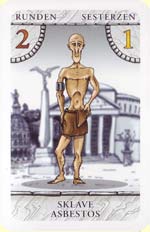

Interestingly, there are popular words: Pecunia non olet, meaning “money does not stink” – words that Vespasian was to say as a reaction to criticism of his son. When Titus said “No,” he replied, “Yet it comes from urine.” When Titus found fault with him for contriving a tax upon public conveniences, he held a piece of money from the first payment to his son’s nose, asking whether its odour was offensive to him. by his own son Titus, who believed that father dealt with frivolous aspects of the economy. Vespasian was criticized for this idea, e.g. Urine collected in public toilets was sold, among others, to tanners, wool producers or laundries the purchaser of urine was required to pay tax on urine. He reformed the finances of the state, and primarily strengthened the treasure, which was heavily ruined by Caligula and Nero. He translated his traits into public life. Translations in context of pecunia non olet in French-English from Reverso Context: Lorsque son fils Titus lui en fit le grief, lempereur lcha cet. The emperor Vespasian was an extremely accurate and thrifty person. There are now two lists of proverbs, on different Wikis, distinguished only by whether or not additional information exists beyond the mere translation I can make no sense. as 'Pecunia non olet', 'money doesnt stink'.
#Pecunia non olet full#
Rome’s contacts with Africa and Far East I remember - or think - that 'Non olet' is usually mentioned in the full sentence, i.e.This item may be available elsewhere in EconPapers: Search for items with the same title. Working Paper: Pecunia Non Olet: on the Self-selection Into (Dis)honest Earning Opportunities (2020)
#Pecunia non olet series#
References: View references in EconPapers View complete reference list from CitEcĬitations: View citations in EconPapers (8) Track citations by RSS feedĪccess to the full text of the articles in this series is restricted. JEL-codes: C91 D81 D91 K42 (search for similar items in EconPapers) Keywords: Lying behavior Lying costs Misreporting Honest earnings Self-selection Laboratory experiment (search for similar items in EconPapers) Our experimental setup allows us to recover individual lying costs and their distribution in the population. Our laboratory experiment identifies lying costs as the decisive factor causing self-selection into honest earning opportunities for individuals with high costs and into cheating opportunities for those prepared to misreport. We propose a decision-theoretic framework where individuals’ willingness to pay for honest earnings is determined by their (behavioral) lying costs. 24, issue 4, No 2, 1105-1130Ībstract We study self-selection into earning money in an honest or dishonest fashion based on individuals’ attitudes toward truthful reporting. Simon: Max Planck Institute for Tax Law and Public FinanceĮxperimental Economics, 2021, vol. The phrase is ascribed to the Roman emperor Vespasian (ruled AD 6979). Company earnings, shareholders, manager, contacts, requisites, lawsuits, debts. Pecunia non olet is a Latin saying that means 'money does not stink'.
#Pecunia non olet professional#
Tim Lohse: Max Planck Institute for Tax Law and Public Finance Professional Company Report about Pecunia non olet. Juvenal Decimus Junius Juvinalis The love of wealth grows as the wealth itself grew. Juvenal Decimus Junius Juvinalis The love of money is with wealth increased, And he that has it not, desires it least. Pecunia non olet: on the self-selection into (dis)honest earning opportunities During his tenure, Vespasian ordered a tax on any urine extracted from public toilets for use in tanning. The richer you become the more you love money.


 0 kommentar(er)
0 kommentar(er)
